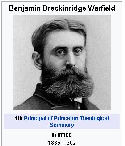ELG NT EverLasting Gospel NT
HUGO McCORD
Carl Hugo McCord was born in New Albany, Mississippi, June 24, 1911. He was immersed into Christ by one of Freed-Hardeman’s professors, L. L. Brigance, in 1923. In preparation for a lifetime of preaching and teaching, he attended Freed-Hardeman College, the University of Illinois, the University of Tulsa, Virginia Seminary, Southern Baptist Theological Seminary at Louisville, and New Orleans Baptist Theological Seminary at New Orleans. Brother McCord holds the following academic degrees: A.A., B.A., M.A., B.D., and Th.D. He has made three trips abroad to study at the British Museum and in Palestine.
Mr. McCord worked as a local preacher in Urbana, Illinois; Indianapolis, Indiana; Washington, D.C.; Dallas, Texas; Alexandria, Virginia; Louisville, Kentucky; Bartlesville, Oklahoma, New Orleans, Louisiana; and Midwest City, Oklahoma. His evangelistic work has carried him into forty-two states, and into the following foreign countries: Sierra Leone, Great Britain, Scotland, Ireland, Australia, Tasmania, New Zealand, Indonesia, Japan, the Philippines, Kenya, Malta, Trinidad, Canada, Egypt, Italy, Sweden, and Thailand. In addition to his preaching activities, Mr. McCord has spoken on at least fourteen of our college lectureships, and at eight Bible camp programs.
Mr. McCord is a retired professor of Bible and Biblical Languages, Oklahoma Christian College, and a retired adjunct professor, Alabama Christian School of Religion. Mr. McCord has been a prolific and dedicated writer. He has written the following books: Disciples’ Prayer, Happiness Guaranteed, From Heaven or From Men?; Getting Acquainted with God, Messianic Prophecy; The Christian Family; Credibility of Creation; Bible Lands and Sacred History; The Royal Route of Revelation; These Things Speak, The H. Leo Boles’ Lectures on Preaching; Fifty Years of Lectures, Volume 2: Fifty Years of Lectures. Mr. McCord has also written extensively for brotherhood papers and journals.
A grateful brotherhood has honored brother McCord for his many contributions to the church and to Christian education. He has received awards and honors from: Oklahoma Christian College, 1977; York College, 1977; Alumni Association of Freed-Hardeman College, 1979; Fort Worth Lectures, 1981; Freed-Hardeman College Elder’s Appreciation Dinner, 1982; Gus Nichols’ Lectureship, 1983; Harding University, 1984; Freed-Hardeman College, 1986.
Mr. McCord and his wife, Lois, met while they were students at Freed-Hardeman College. They have two children: Charles, the father of two and Carolyn, the mother of four.
FOREWORD
FOR THE FOURTH EDITION OF THE FREED-HARDEMAN VERSION (FHV)
Are you married to one translation of the Bible “until death doth us part”? Monogamy is right in marriage; but, in the area of Bible translations, a wise person will be a polygamist. Similarly, though an elder must be a “one woman man” (mias gunaikos andra, 1 Tim 3:2), a wise person will not be a “one translation student.” G. C. Brewer often said that one of the best commentaries on the Bible is the use of a number of translations. The scholars who translated the King James Version gave the same advice in the preface of their 1611 edition:
A variety of translations is profitable for finding out the sense of scripture … The very meanest translation of the Bible in English … containeth the word of God, nay, is the word of God.
The Holy Spirit chose words that were easily understood. Habakkuk was commanded, “Write the vision and make it plain on tablets, so that a runner may read it” (2:2; cf. Eph 3:4; 5:17).
However, the KJV uses the word “let” to mean “prevent” (Rom 1:13), and uses the word “prevent” to mean “precede” (1 Thess 4:15), while advising readers to “hold fast the form of sound words” (2 Tim 1:13). The NKJV has corrected both of these mistakes.
Also, the KJV uses such words as “grisled,” “holpen,” “sith,” “unicorns,” “strawed,” “bewrayeth,” “wist,” “wit,” “wot,” and “trow” (Gen 31:10; Ps 83:8; Ezek 35:6; Deut 33:17; Matt 25:24; 26:73; Luke 2:49; 17:9; Acts 3:17; 2 Cor 8:1), while advising readers to use “sound speech that cannot be condemned” (Titus 2:8). The NKJV has replaced all such words.
Many popular versions of the “God-breathed” (2 Tim 3:16) Bible have contradictions. A variety of errors, made by those copying Hebrew and Greek manuscripts, or by those translating them into English, are cited in the Appendix.
“The words of Yahweh are pure, as silver melted in a furnace, refined seven times” (Ps 12:6).
Hugo McCord
11625 SW Vacuna Ct
Portland, Oregon 97219-8903
(from “The Everlasting Gospel”, Copyright \u169? 2000 by Freed-Hardeman University. All rights reserved.)
egnt-Everlasting-Gospel.nt (21 downloads )
Advertisement
In this class, Treasury of Scripture Knowledge we show you what is and how to use TSK, Treasury of Scripture Knowledge. This work is simply a commentary of all the verses in the Bible where the author has gone through hundreds if not thousands of English study Bibles, and he has added whatever Bible references each of those Bibles had on that particular verse. As a pastor making sermons, this excellent reference tool within theWord can help you generate a very excellent sermon in a minimum of time and effort. This will leave you with a lot of extra time to pursue illustrations, commentary explanations, making structure and outline of the sermon, etc. It is a God send for preachers, really! Pastor David Cox

